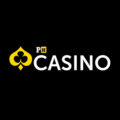Gambling has always been a popular pastime for many Filipinos, and the Philippines has a rich history and culture of it that spans centuries. From traditional games played in local communities to modern casinos and online platforms, the country has a diverse range of gambling activities for everyone.
One of the most popular traditional gambling games in the Philippines is “jueteng.” This game involves selecting a combination of numbers from 1 to 37, and players can win up to 4,500 times their initial bet. Jueteng has been around since the Spanish colonial period, and it is still played in many communities today. Despite being illegal, the game has a massive following and is often linked to politics and corruption.
Another traditional game is “sakla,” which is similar to the Western game of poker. Players bet on the strength of their hand, and the game is played with a deck of 32 cards. Sakla is often played during the Christmas season and is a popular game among families and friends. It is also a game of skill, and many players take pride in their ability to bluff and read their opponents.
In addition to traditional games, the Philippines is also home to many casinos and gambling establishments. One of the most famous is the Solaire Resort and Casino, which is located in Manila. The casino features over 1,200 slot machines and 300 gaming tables, as well as luxury hotel rooms, restaurants, and entertainment venues. It is a popular destination for both locals and tourists, and it has helped to boost the country’s tourism industry.
Online gambling is also becoming increasingly popular in the Philippines, with many operators based in the country. Filipinos can access a wide range of online casino games, including slots, table games, and sports betting, from the comfort of their own homes. Online gambling has faced some regulatory challenges, but it remains a lucrative industry that provides jobs and revenue for the country.
Despite its popularity, gambling in the Philippines has also faced its share of challenges. In recent years, the government has cracked down on illegal gambling operations, particularly those that involve online platforms. This crackdown has been in response to concerns about money laundering and organized crime. However, with the proper regulations in place, gambling can provide a significant boost to the economy and offer Filipinos a fun and entertaining way to spend their free time.
In conclusion, the history and culture of gambling in the Philippines are fascinating and diverse. Whether you prefer traditional games or modern casinos and online platforms, there is something for everyone to enjoy. While the industry has faced its share of challenges, it remains an integral part of Filipino culture and a significant contributor to the country’s economy.






